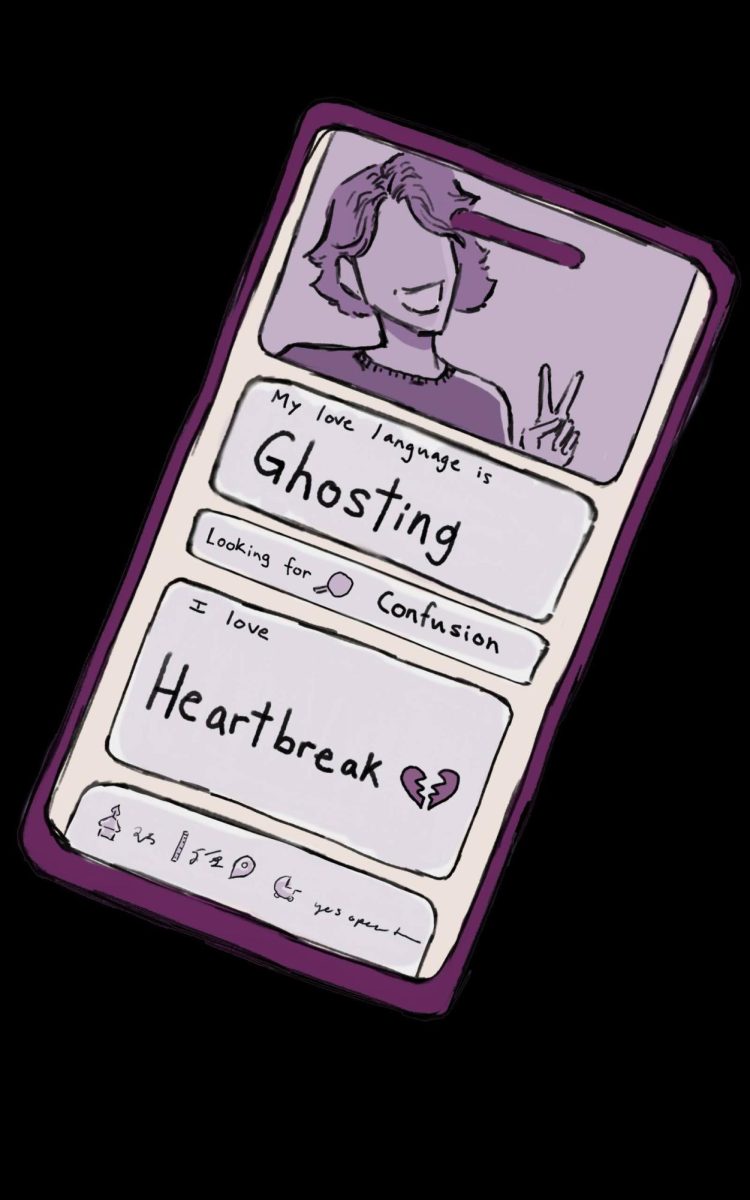According to a 2019 article from Stylight, a fashion-forward company that highlights trending lifestyle discussions, online dating is here to stay. A plethora of applications (apps) to choose from has made it incredibly easy for people to step into the dating pool. However, facilitating dates is not as easy as eliciting results through committed relationships. While the apps may pave the way for quick and dirty meet-ups, they are not the go-to for long-term relationships. This is not the fault of the apps themselves, but rather the way we use them.
According to the Washington Post, dating apps have acquired a reputation for inefficiency, but it may appear that way due to modern attitudes toward dating, rather than by design.
When Tinder was launched in 2012, it quickly gained popularity around the world, causing online dating statistics to soar within the next 10 years of its invention. A year later, Hinge — one of Tinder’s main competitors — was created, boasting itself as the “relationship app” and claiming to divert from the “swipe” culture that hookup-centered dating apps such as Tinder and Hinge have fostered.
Hinge’s features prompt a more interactive experience by adding endless picture, question and poll prompts for profiles. Users of the dating app are forced to take a closer look at potential matches, rather than swiping left for disapproval or right for approval at immediate face value.
While Hinge has supposedly forced its users to think deeper about matches, this begs the question: Do people know couples who are in a serious relationship with someone they met from Hinge?
Finding a significant other through an algorithm seems impossible, and the survey data isn’t very enthusiastic about it, either. “You’re not going to find a gem there, but you’ll find something solid,” an interviewee said to Vox News for an article on online dating. The interactions feel superficial; ghosting — a practice where people disappear from conversations without any context — is all too common. Online dating is not a very accurate representation of what real life is like.
It is crucial to keep in mind that every profile is reflective of a human being.
So, what went wrong with Hinge? The interface has been designed to include prompts such as “Let’s break the ice by …” or “I’ll fall for you if …” and lets you view who’s already placed a “like” on your profile free of charge, which cannot be said for most online dating apps. The problem at hand is our mentality surrounding online dating culture, not the apps themselves.
What are users of online dating apps searching for? Whether that may be casual sex, a few dates or a lifelong partner, new profile features such as the ones on Hinge allow users to directly state their expectations, and yet people find themselves prone to clicking the unmatch button as soon as the conversation hits a pause or a bump.
Online dating can become video-game-esque if you are not careful. Especially in an era where most of our information is collected through internet-adjacent means, creating sincere or lasting connections can be difficult when the Hinge algorithm promises to generate five replacements for every “unmatch.”
It is crucial to keep in mind that every profile is reflective of a human being — a premise that one might think is obvious but, in actuality, is quite easy to forget. Entering the online dating scene must be done with an acceptance of reality. Yes, this new way of meeting people might not be foolproof, but yes, you should still treat people with care. Our attitudes are what need fixing, not the apps.
Hinge has done everything it can to help us, including a feature where the app surveys if you have met one of your matches in person yet after it notices that you’ve exchanged phone numbers with someone.
Statistics from a report published by CNN Business show that more people are turning away from the swipe culture of Tinder, but so many promising Hinge matches turn to dust in the wake of ghosting and lack of continued interest. Let’s stop blaming the apps; figure out what you want, lock-in and match.

